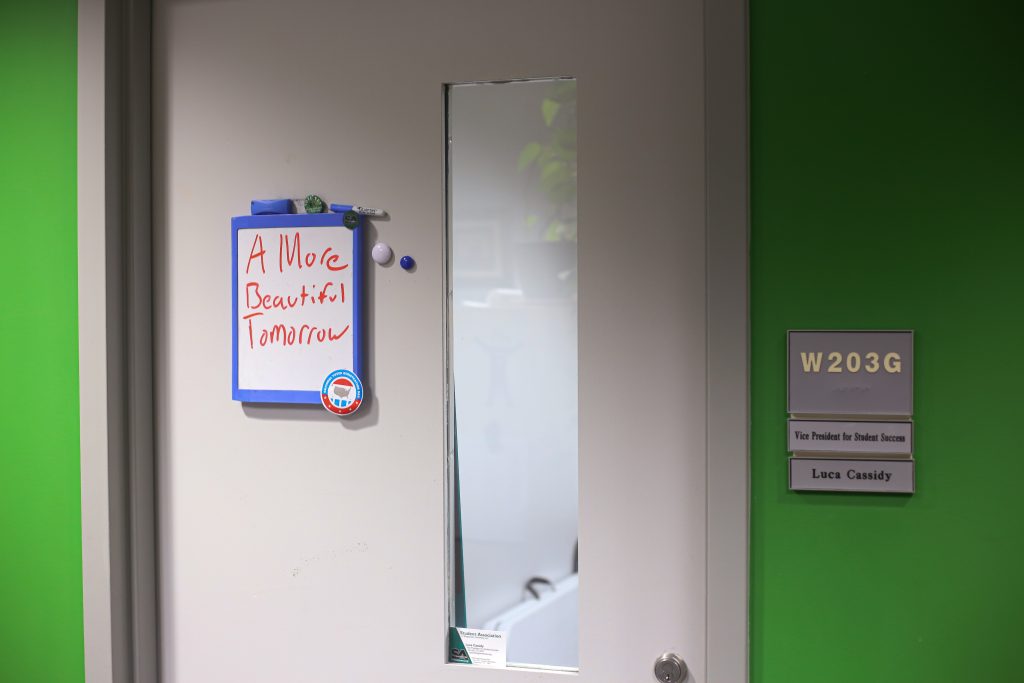The Vice President for Student Success and the Student Association collaborated with a diverse array of organizations to host a Multicultural Voting Fair.
The fair, held Wednesday from 1 p.m to 3 p.m. in the Mandela Room, was a collaboration between multicultural organizations, including the Asian Student Union (ASU), the Latin American Student Union (LASU), the Hindu Student Council (HSC), the Juvenile Urban Multicultural Program (JUMP) and the Indian International Student Union (IISU). The organizations tabled and distributed cultural food like samosas, empanadas and bubble tea. The purpose of the event was to encourage voting among multicultural student groups on campus.
As students entered the fair, they were greeted by four tables — the first two provided voter registration paperwork and instructed participants about applying for an absentee ballot. Subsequent tables had students pledge to vote in the upcoming election and encouraged attendees to serve as poll workers. Participants had to visit all four tables to fill out their stamp cards and receive free food from the tabling organizations.
According to U.S. Census data, 2022 boasted the second-highest voter turnout for a non-presidential election year since 2000, with 52.2 percent of the voting-age population casting a vote. The 2022 election also had 31.8 percent of all voters cast ballots by mail, up from 23.1 percent in 2018.
Luca Cassidy, the VPSS and a junior majoring in economics, was one of the main organizers of the voting fair. He shared insights into the motivations behind the voting fair and the importance of engaging with the University’s multicultural community.
“Multicultural clubs have immense sway on this campus,” Cassidy wrote in an email. “Collaborating with them guarantees that an engaged population will show up. In addition to this, voting rates [and] registration rates among Asian Americans are below the national average, so we wanted to change that with this event. Lastly, the SA rarely collaborates with the multicultural community, except for the [Vice President of Multicultural Affairs] (VPMA), so this is a fun opportunity to build relationships and show that not just the VPMA cares about our multicultural community.”
Funding for the fair came from multiple external grants, including AAPI Vote and Voter Registration Day. The grants, totaling $1,000, were mainly used for food and drinks.
The event was organized in part by the Multicultural Resource Center and the Center for Civic Engagement — a nonpartisan civic advocacy organization whose main goal is to “[cultivate] partnerships that strengthen communities and develop active and engaged citizens.”
Trevor Fornara ‘23, the CCE’s civic education coordinator, described his organization’s role in the event and the importance of encouraging voting among students of color.
“It is important to reach out to multicultural organizations regarding voter engagement, especially those that serve underrepresented populations,” Fornara wrote. “The CCE is committed to closing the voting gap between white students and Students of Color by removing barriers to registering and turning out to vote. Our office provided support to this event through partial funding and providing voter registration forms.”
Students are able to vote in local and national elections on campus every election year. The location of the voting sites varies depending on space available and the site for November’s elections will be announced closer to election day.



